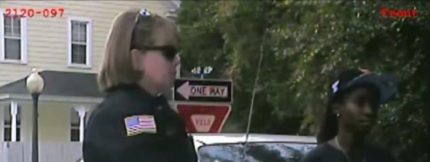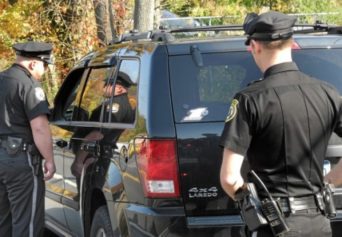
At a time when white people in many different cases have shown a willingness to quickly call 911 when presented with an African-American stranger in their neighborhood or near their home, the ruling could potentially put many African-Americans in unnecessary conflict with the police.
The 5-4 decision in Navarette vs. California upheld the ruling of a lower California court and split along the usual ideological lines — except Justice Stephen G. Breyer, who usually votes with the more liberal members, joined the opinion written by Justice Clarence Thomas to form the majority, while Justice Antonin Scalia dissented and joined with the more liberal members.
According to the justices, police stops after 911 calls do not amount to an unreasonable search or seizure, even if the arresting officer did not observe the vehicle speeding or swerving.
These are the details of the case, as described by the Los Angeles Times: In August 2008 a 911 dispatch team in Mendocino County, Calif., received a report that a pickup truck had forced another vehicle off the road. The caller did not give his or her name, but the report included a detailed description of the truck, including the license plate number.
When an officer saw a truck that fit the description, the officer stopped it and found 30 pounds of marijuana in the truck bed. He arrested Lorenzo Navarette and Jose Navarette, who were eventually convicted of trafficking marijuana.
When the men appealed, arguing the stop and search violated their rights under the Fourth Amendment because the officers did not have reasonable suspicion to pull them over in the first place without knowing the identity or reliability of the tipster, the case eventually made its way to the highest court.
The five-justice majority has now given police new authority to rely on anonymous tipsters, which changes a previous court ruling that said police officers could not rely on an anonymous tip to stop and search a pedestrian. In that case, the court worried that anonymous callers could unfairly target people for embarrassing searches.
But on Tuesday, the court majority agreed that police have “reasonable suspicion” to stop a vehicle if they receive a report that it was speeding, swerving or, in this instance, driving another car off the road.
In his opinion, Thomas said because the 911 tipster said she had been forced off the road, she was an eyewitness and police could infer that there was reason to believe the truck driver was drunk.
Thomas said relying on 911 tipsters is reasonable because “a 911 call has some features that allow for identifying and tracking callers,” and the calls can be recorded.
But fellow conservative Scalia wrote a scathing dissent that called his colleague Thomas’s opinion a “freedom-destroying cocktail” that would encourage “malevolent” tipsters to make false reports. It matters not whether the caller gave details about her alleged accident, Scalia said. The issue is “whether what she claimed to know was true.”
Scalia pointed out that the police officers followed the pickup for more than five minutes — and “five minutes is a long time” — without any indication of drunken driving or even bad driving.
“After today’s opinion,” said Scalia, “all of us on the road, and not just drug dealers, are at risk … “


